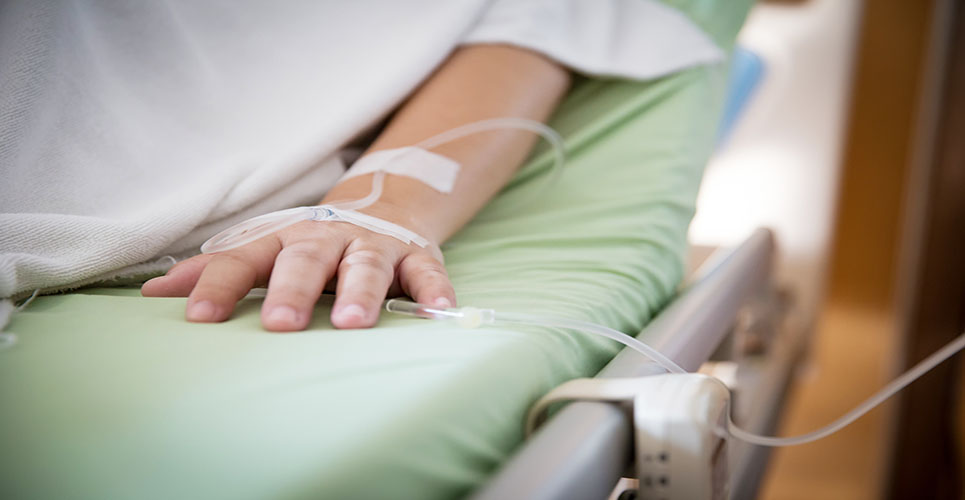teaser
I was born and brought up in London. After qualifying as a pharmacist I moved to Jerusalem, becoming an “expat”. I wouldn’t change my domicile for all the money in the world.
Over the years I have been lucky enough to have visited most of the European capitals plus a large number of places in the Far East and Australia. I found Sydney hospitable, Paris exciting, Bangkok overwhelming, Vienna romantic and Ho Chi Minh City mysterious. But it’s New York I love!
As far as I am concerned a visit to the “Big Apple” at least once a year is obligatory. I do my best to make my visit coincide with the annual Chemotherapy Foundation meeting, which has taken place in the first week of November every year for the last 25 years. It was here that I became aware of the then up-and-coming new trend in oncology practice, oral chemotherapy.
Anticancer chemotherapy is one of the rare fields of therapeutics in which treatment has ordinarily been given intravenously. IV chemotherapy is typically delivered via an intravenous line through a catheter that is implanted under the skin, often using a specialised pump.
Apart from the minor surgery necessary to have the IV line inserted, which in itself can cause complications, many people find this very unpleasant and uncomfortable. Additionally, intravenous devices remain in the body between treatments and their presence can lead to further complications. People who are given chemotherapy by IV infusions generally spend large amounts of time, either travelling to and from, or actually in, the hospital receiving treatment. Taking oral chemotherapy in the form of a tablet or capsule eliminates a large amount of the risks as well as eliminating much time wasting.
Until recently very few of the available drugs were suitable for oral administration, requiring IV treatment to be prepared and administered by specialist staff. Over the last five years several new oral anticancer agents have become commercially available and many more are in the development pipeline. The term “oral anticancer drugs” is used to refer to all drugs with direct antitumour activity administered orally to cancer patients, as well as partially targeted treatments and drugs such as thalidomide. It does not include hormonal or antihormonal agents. It is likely that tens of thousands of outpatients have already received oral anticancer treatment of some kind.
Studies have found that more than 80% of cancer patients prefer to receive oral rather than intravenous chemotherapy. The main reason given was the convenience of taking the treatment at home, allowing patients the freedom to carry on with their daily lives without the disruption of hospital visits.
These studies found that there is a high demand for effective oral chemotherapy and that this type of therapy would significantly improve the quality of life of people with cancer.
It is important to stress that indeed some oral chemotherapies have been shown to be more effective than conventional chemotherapy. Significantly, oral anticancer treatment will start to reduce the burden on pharmacy and nursing staff in overstretched chemotherapy reconstitution and day units. It is predicted that there will be a considerable reduction in the workload of the chemotherapy reconstitution units.
It is of critical importance to be aware of a future shifting of workloads in the pharmacy with oncology patients arriving at dispensaries manned by staff who are not necessarily expert in oncology. To manage this transition safely and efficiently, thorough planning and some retraining will be needed.
Treating patients with oral drugs challenges the traditional approach to anticancer treatment, particularly the use of potent anticancer chemotherapy drugs, which have a narrow therapeutic index. Home-based treatment may continue for weeks at a time without direct professional intervention or supervision.
Cancer patients are often thought of as well motivated to comply with their treatment instructions. One study of patients with lymphoma found 100% overall compliance for oral medicines but another found that only 43% took their oral cyclophosphamide as prescribed and some exceeded the prescribed dose. Compliance with treatment is relatively easy to achieve when professionals administer treatment personally.
When the responsibility for administration is shifted to the patient, safe and effective treatment requires concordance rather than, simply, compliance. The significance of and reasons for intermittent, pulsed treatment may be hard for some patients to grasp yet misinterpretation carries the risk of serious harm.
Education of primary care professionals and patients about the use and potential for misuse of oral chemotherapy will be critical to patient safety. Experience with capecitabine, for example, has shown the importance of quality monitoring of patients – ensuring both patients’ compliance and ability to recognise side-effects. This will that ensure that dosing can be modified accordingly, if necessary.
The British Oncology Pharmacy Association released a position statement on safe practice and the pharmaceutical care of patients receiving oral anticancer chemotherapy in January 2004. This statement reviews the Principles of Safe Practice of prescribing and dispensing of oral chemotherapy, noting that they should be carried out and monitored to the same standards as those for parenteral chemotherapy. Further issues that are dealt with include: prescribing, dispensing and labelling, patient education and information, patients’ access to advice and support when at home and general risk management. The move to oral chemotherapy is gaining pace. It is important for all healthcare workers working in the oncology field to prepare themselves for the change.
Your comments: (Terms and conditions apply)
“Excellent! Informative and well written.” – Mickey Arieli, director, pharmaceutical crime unit, Ministry of Health, Israel
“Very nice, interesting and highly informative.” – DK, London, UK

